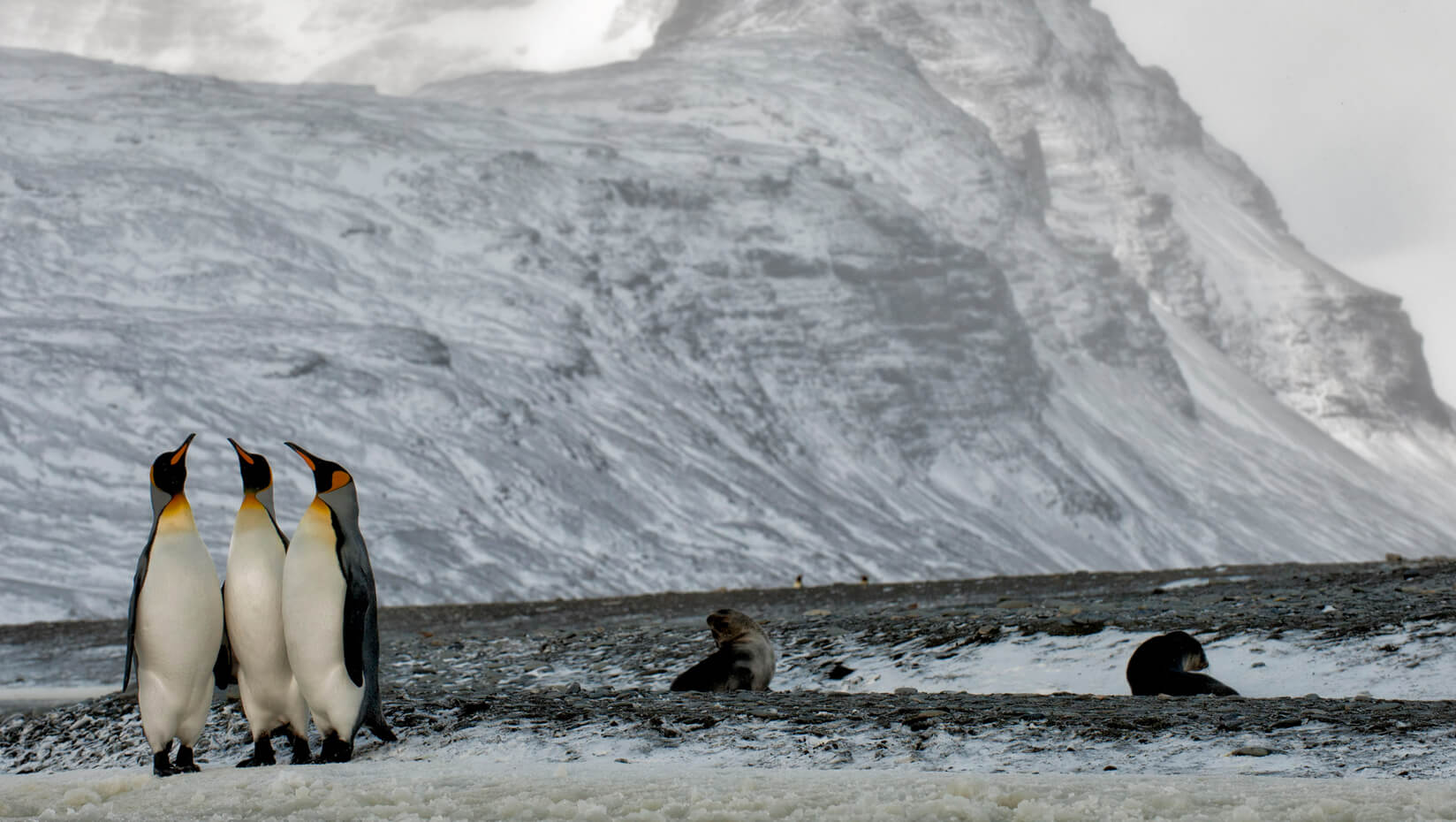
CCI collects ice cores from South Georgia, traces route of Sir Ernest Shackleton
University of Maine researchers traced a portion of a route in the Southern Ocean made famous by polar explorer Sir Ernest Shackleton, whose 1914–1916 South Pole expedition aboard Endurance has been called one of the greatest survival stories of all time.
Paul Mayewski, director of the Climate Change Institute, led a team to recover ice cores from one of the last sites potentially available in the South Atlantic region before records are lost due to melting. Graduate students Mario Potocki, Jeff Auger and Ben Burpee took part in the 4.5-week expedition.
In November, the team returned from the 1,600-mile round trip with samples of ice cores and lake water. The samples will be examined to determine whether future drilling should be conducted.
Deeper drilling, says Mayewski, could result in information about several thousand years of changes in climate and chemistry of the atmosphere in the Antarctic, sub-Antarctic and southern South America. Those details could be used to better predict the climate future of the Southern Hemisphere.
While the spring conditions were challenging, including winds 50–70 knots (58–81 mph), they weren’t as severe as what Shackleton faced a century ago.
In 1915, Endurance became entombed in ice, was crushed and sank. The team initially camped on floating ice then used lifeboats to reach Elephant Island, off the coast of Antarctica.
Shackleton returned to the ocean in a lifeboat to get help. He landed the lifeboat on South Georgia, traversed over the island to reach a whaling station and eventually found a vessel that rescued his fellow explorers.
Mayewski and crew were aboard the 73-foot sailboat Pelagic Australis, a vessel specially constructed for the Southern Ocean. They accessed South Georgia at the same location first used by Shackleton, on the windward side of the island amidst heavy seas and surf.
Mayewski and the UMaine students were accompanied by scientists from Universidad de Magallanes in Chile, University of Wollongong in Australia and Imperial College London.
They collaborated with and were guided by Skip Novak, owner of Pelagic Australis and his crew — Capt. Dave Roberts, First Mate Thomas Geisel and Second Mate Lizzy Fitzsimmons. All members of the science team assisted with logistics of sailing in the Southern Ocean.
Mayewski attempted the same expedition to the remote site in 2012 but was met with poor weather that dramatically reduced the ability of the team to get ashore.
For more information about the trek, as well as photos and a video, visit pelagic.co.uk/news_latest.asp.
Contact: Beth Staples, 207.581.3777
